Recovery from addiction goes far beyond simply quitting drugs or alcohol. It’s an intensely personal, emotional, and spiritual path that requires healing the wounds created during active addiction. Among the most transformative parts of this journey is the act of making amends—a central tenet of the 12-step program that has helped countless individuals achieve lasting sobriety.
In this article, we’ll explore the importance of making amends in recovery, what it truly entails, and how to approach the process with sincerity, courage, and compassion.
A Closer Look at Steps 8 and 9 of the 12 Steps
Originating with Alcoholics Anonymous (AA), the 12-step program includes two steps specifically devoted to making amends:
- Step 8: “Made a list of all persons we had harmed, and became willing to make amends to them all.”
- Step 9: “Made direct amends to such people wherever possible, except when to do so would injure them or others.”
These steps are about more than apologizing. They involve taking ownership of past actions, recognizing the hurt inflicted, and actively working to rebuild trust and repair relationships.
Why Making Amends is a Crucial Part of Recovery

Making amends plays a central role in healing during recovery. Addiction often leads to damaged relationships—through deceit, broken promises, manipulation, theft, or neglect. These actions can fracture trust and leave lasting emotional scars. By making amends, individuals can begin to repair the emotional damage, open the door to forgiveness, and perhaps even reconciliation. Not all relationships will be restored, but the genuine effort to make things right can bring profound peace to both parties involved.
On a personal level, this process fosters emotional and spiritual growth. Addiction thrives in secrecy, guilt, and shame. Making amends brings those hidden feelings into the light, requiring vulnerability and truthfulness. It nurtures emotional maturity and helps align the recovering person with values like humility, accountability, and integrity—cornerstones of a sober and fulfilling life.
Making amends also relieves the heavy burden of guilt many carry from their time in active addiction. Rather than avoiding the past, this process transforms remorse into healing. It’s not about forgetting what happened but acknowledging it, learning from it, and committing to a better future.
The Different Forms of Amends
Amends can take several forms, depending on the situation:
- Direct Amends: These involve face-to-face conversations (or phone/video calls when necessary) where the individual takes responsibility, expresses remorse, and offers to make things right—whether through a sincere apology, restitution, or other meaningful gestures.
- Indirect Amends: Used when direct contact is impossible or potentially harmful—such as when the person is deceased or unreachable. This may include writing a letter (even if not sent), charitable acts, or symbolic gestures of repair.
- Living Amends: This ongoing commitment involves changing one’s behavior over time. It means living with integrity and becoming someone trustworthy and dependable. For example, a parent may show their growth through consistent presence and support, while others may demonstrate their transformation through acts of kindness and continued sobriety.
Common Barriers to Making Amends
Fear of rejection is one of the biggest challenges. The possibility of being met with anger, hurt, or indifference can be intimidating. Yet, recovery requires bravery. Making amends isn’t about controlling the outcome—it’s about showing accountability.
Another obstacle is uncertainty about how to proceed. Some situations are complex and unclear. This is where guidance from a sponsor, therapist, or recovery peers is invaluable. They can help clarify what’s appropriate and support you through difficult decisions.
Finally, confronting painful memories can be emotionally overwhelming. Feelings of shame, regret, or grief often resurface. It’s essential to meet these emotions with self-compassion. Making amends is not self-punishment—it’s a path to emotional freedom and healing.
The Long-Term Benefits of Making Amends
The rewards of making amends are life-changing. One major benefit is the potential for repaired and strengthened relationships. While not every relationship will be salvaged, many can improve as others recognize the sincerity behind the effort.
It also leads to enhanced self-esteem. Facing the past with honesty fosters a renewed sense of self-respect and personal growth. Instead of being defined by mistakes, individuals begin to see themselves as capable of living with integrity.
Importantly, making amends supports ongoing sobriety. Lingering guilt and shame are powerful relapse triggers. Taking steps to make things right helps eliminate secrecy and cultivates a deeper commitment to recovery. It reminds individuals of how far they’ve come—and the person they’re becoming.
How to Make Amends: A Practical Approach
Every amends is unique, but the following steps can help guide the process:
- Make a List: Identify those you’ve harmed, with honesty and openness. This is a time for self-awareness, not self-judgment.
- Seek Support: Discuss your list with a sponsor or trusted advisor. They can help you decide which amends are safe and appropriate.
- Prepare Emotionally: Understand that responses will vary. Some may forgive, others may not. Focus on your intention, not the result.
- Reach Out with Sincerity: Be clear and heartfelt. Acknowledge your wrongdoing without excuses, express remorse, and offer to make it right.
- Accept What Comes: Some relationships may heal slowly or not at all. What matters is your commitment to take responsibility and grow.
Get Help Making Amends in North Andover, MA

At Luna Recovery for Women, we offer personalized support and guidance to help you craft a realistic and safe way to make amends during your addiction recovery.
Contact us anytime at (855) 943-0472 or info@lunarecoverycenter.com, or visit us at 1270 Turnpike St, North Andover, MA (01845).
Start your journey of healing today. Recovery is possible—and it begins with taking the next right step.


